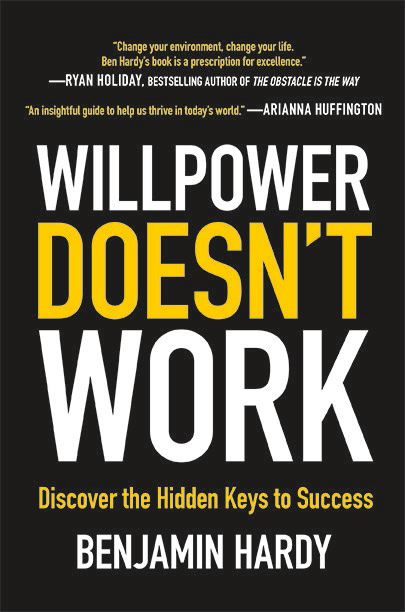#Leadership : This is How to Deal with your #IncompetentCoworkers …You Know the Person who Doesn’t Pull their Weight? Here are a Few Dos and Don’ts to Getting Things to Change.
In almost every workplace, there is bound to be someone who isn’t pulling their own weight.
When you’re an ambitious, hard-working employee who is committed to growing your career and the company, it’s frustrating to work with someone who seems interested in only doing the bare minimum.
Here are the dos and don’ts of dealing with a lazy colleague.
DON’T: VENT YOUR FRUSTRATION TO YOUR COLLEAGUES
You probably know that talking bad about your colleagues is a no-no. But it’s easier to succumb to this temptation than you think. As Lydia Dishman previously wrote in Fast Company, it’s natural to want to blow off steam. But as Jeffrey Lohr, a professor at the University of Arkansas, told Dishman, venting anger is similar to “emotional farting in a closed area.” And instead of making you feel better, you’ll probably end up being angrier. And you definitely don’t want to be known as the ill-tempered person in the office.
Like this Article ? Share It ! You now can easily enjoy/follow/share Today our Award Winning Articles/Blogs with Now Over 2.5 Million Growing Participates Worldwide in our various Social Media formats below:
FSC LinkedIn Network: www.linkedin.com/in/fscnetwork
Facebook: http://www.facebook.com/pages/First-Sun-Consulting-LLC-Outplacement-Services/213542315355343?sk=wall
Google+: https://plus.google.com/115673713231115398101/posts?hl=en
Twitter: Follow us @ firstsunllc
Question: Want the ‘the best/current articles/blogs on the web’ on Job Search, Resume, Advancing/Changing your Career, or simply Managing People?
Answer: Simply go to our FSC Career Blog below & type(#career, #leadership, #life) in Blog Search: https://www.firstsun.com/fsc-career-blog/
What Skill Sets do You have to be ‘Sharpened’ ?
Continue of article:
DO: TRY TO SEE THEIR POINT OF VIEW, AND ACT ACCORDINGLY
Admittedly, this is hard to do. But sometimes, you can get them to pull their own weight when you understand why they’re, well, not. As Alyse Kalishwrote for The Muse, people are motivated by different things. Kalish cited Gretchen Rubin’s “four tendencies,” which categorizes people into upholder, obliger, rebel, and questioner. Someone with a “rebel” tendency, for example, does not respond well to authority and needs to feel like they have complete autonomy of their actions. This means that when you phrase a request to them, you don’t do it as a command. Kalish gave the example, “Jill isn’t sure we can get the presentation done by this afternoon. What do you think?”
Related: How to be more assertive at work when that’s just not your personality
DON’T: COMPLAIN TO YOUR BOSS WITHOUT TALKING TO YOUR COWORKER FIRST
As tempting as it is to rant to your coworkers, it’s also tempting to go running to your boss–particularly if you know that they think of you as a high performer. It’s not going to make you feel better, for starters. It can also make you sound petty, and as Ask a Manager‘s Alison Green pointed out, your boss might already be aware of the problem and is trying to do something about it. Perhaps it’s not having an effect, but you moaning it about it isn’t going to make a difference.
DO: FOCUS ON WHAT YOU CAN CONTROL ABOUT THE SITUATION
So you’ve tried to adopt your ask based on your coworkers’s personality, but that doesn’t seem to be working. It’s true that ultimately, your coworker’s actions aren’t in your control, but your actions are. One thing that you can do, Kalish suggested, is offer to help them. She gave the following example as a way to start the conversation: “Hey, I noticed you’ve been staring at your screen all day–I’m free for a bit, anything I can help out with?”
DON’T: CONSTANTLY OVERCOMPENSATE FOR THEIR LACK OF EFFORTS
You might be tempted to pick up your coworker’s slack if you’re not the confrontational type. After all, you don’t want to get in trouble for their lack of efforts and shoddy work, right? But as Courtney C.W. Guerra, author of Is This Working?: The Businesslady’s Guide to Getting What You Want From Your Career pointed out, this approach is only acceptable in two situations. The mistake (or work) is so minor and doesn’t take long to fix, or the colleague in question is just having a really bad day, and you want to help them out. When it doesn’t fall into those two situations, you’ll just make yourself more angry and resentful, and that can impact your work. Don’t let someone else’s laziness ruin your reputation.
Related: How to deal with a passive-aggressive coworker
DO: KEEP A DOCUMENTATION OF YOUR WORK AND INTERACTION
When all else fails and you do need to bring it up with your manager, it always helps to have documentation. Whether it’s setting expectations with your coworker over email or writing down your conversations and evidence of their behavior, you need to make sure that it’s based on facts, not feelings. Yes, it can be hard to be objective when every part of you wants to call this person out. But as Maurice Schweitzer, coauthor of the book Friend & Foe: When to Cooperate, When to Compete, and When to Succeed at Both, previously told Fast Company, “If you lose your cool, you will be in danger of looking undignified.” Don’t put yourself at risk of that.
ABOUT THE AUTHOR
FastCompany.com | June 7, 2018 | BY ANISA PURBASARI HORTON 3 MINUTE READ












If you like this article (or even if you don’t) it would be a great honor to have you subscribe to our mailing list HERE
Nancy King –
Dr. Nancy Koury King is President of Senior Options, LLC, which provides Leading Age members with home health and hospice advisory services. Throughout her career, she has also served as an adjunct faculty member at the graduate and doctoral level teaching ethics, leadership, marketing and qualitative research. Dr. King is also the author of “Fired: How to Manage Your Career in the Age of Job Uncertainty.” She spent 5 years traveling the country interviewing 65 people who lost their jobs. The book provides an invaluable resource to anyone trying to manage their career as well as to those who have been let go. Dr. King writes and speaks on workplace issues and leadership.